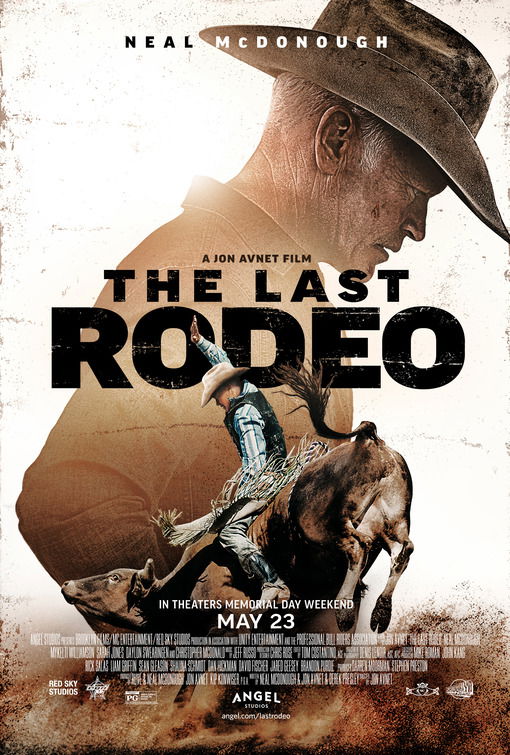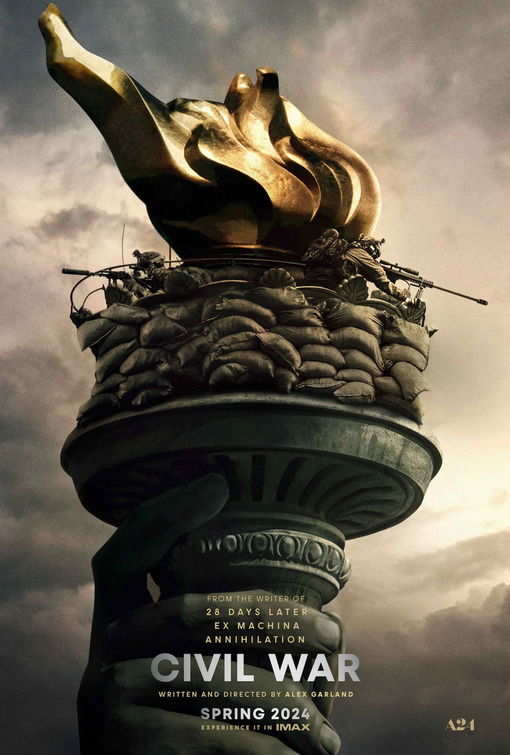“Violent, Depressing, Monotonous, and Facile, Full of Sound and Fury”

| None | Light | Moderate | Heavy | |
|---|---|---|---|---|
| Language | ||||
| Violence | ||||
| Sex | ||||
| Nudity |
What You Need To Know:
Writer/Director Alex Garland doesn’t deal with the political background to the conflict. Instead, CIVIL WAR is more like an antiwar film. As such, it has a strong cynical, depressing, nihilistic worldview of America if it ever succumbed to a modern civil war. In fact, the movie’s last scenes are rather bleak. However, the movie does have scenes where people look out for others and sacrifice themselves for others. Sadly, though, the two big gun battles, especially the one at the end, are not only super violent, they’re also rather monotonous. CIVIL WAR also contains lots of strong foul language. The movie’s content is excessive.
Content:
Strong cynical, depressing, nihilistic view of America if a modern political civil war ever broke out in the country, mitigated by some light moral content such as an experienced war photojournalist makes a comment that she never wanted America to fall into the kind of civil wars she’s covered in other countries around the world in her career and people try to look out for one another during combat situations, and some light redemptive content where people sacrifice themselves for others, and the President says, “God bless you and God bless America” in a speech, but he’s also viewed as a bad guy and would-be tyrant who deserves death, and movie implies in a politically correct scene that people concerned about mass immigration are just vicious genocidal xenophobes, and movie seems to make some vague, light politically correct pints about the dangers of extreme populism of all kinds;
At least, 69 obscenities (including about 40 “f” words), one Jesus profanities, four light profanities, and young woman vomits after a undergoing a harrowing experience;
Lots of strong and very strong war violence includes multiple point blank shootings in the head and chest, two extensive scenes of gunbattles in a city and as rebel troops storm Washington, D.C., the White House compound and inside the White House, big gun battle inside the White House with multiple point blank shootings and an execution, man runs over several soldiers with an SUV when one soldier murders two people and threatens to murder two or three more, explosions, people come across tow looters hanging outside and showing signs of being tortured, bloody and mangled bodies lie in the street after an explosion rips apart a police car during an intense confrontation between police and protestors in New York City, soldiers dump dead bodies in a trench on a bunch of other dead bodies and sprinkle the bodies with lime, woman falls into the trench at one point and has to climb out over the bodies with help;
No sexual content;
No nudity;
Alcohol use and drunkenness;
Smoking and frequent marijuana smoking; and,
America descends into moral chaos as a civil war breaks out, but the movie doesn’t really cover the political background of the conflict, and two people are kidnapped by a soldier on one side of the civil war depicted in the movie (the movie is vague about which side).
More Detail:
The story centers on an acclaimed female photojournalist named Lee Smith, played by Kirsten Dunst. She and her colleague, a reporter named Joel (Wagner Moura), plan to travel to Washington, DC, where the beleaguered President is trying to withstand an assault by Western Forces backed by California and Texas, who have seceded. There’s another alliance of rebels, led by Florida, but they don’t figure much in the plot.
The movie opens with Lee meeting a 23-year-old photojournalist, Jessie (Cailee Spaeny), who idolizes Lee, during an intense confrontation in New York City between protestors and police. Jesse wants to be a war correspondent like Lee, but Lee reminds her that that’s a dangerous profession. Sure enough, their coverage of the protest is suddenly violently interrupted when someone sets a bomb under a police car, and bodies go flying. Lee and Jessie survive, but the scene devolves into chaos with dead bodies of cops and protestors strewn on the pacement. Lee and Jessie survive, however.
Lee and Joel return to the hotel where journalists are staying, and Jessie ends up there too. Joel decides to get drunk at the bar while Lee heads up to her room to crash.
The next morning, Lee learns that the previous night Joel had invited Jessie to ride with them to Washington, D.C. in their press van. Lee is dead set against having such a greenhorn go with them. Also, the trip is going to be dangerous, and Lee doesn’t want the responsibility. Despite her objections, Jessie travels with them. Also, an older journalist, Sammy, who often uses a cane, tags along, with Lee and Joel agreeing to drop him off on the front lines of the civil war, in Charleston.
The rest of the movie is a series of setpieces as the journalists run across two looters being tortured, cover an intense firefight in one city between militia forces and loyalist troops, get caught between two snipers near a huge mansion, and encounter a genocidal soldier who kidnaps Jessie and a fifth journalist riding in a second vehicle. The movie’s ending follows Lee, Joel and Jessie as they travel with the Western Forces as it storms Washington, D.C. and the White House compound. The city firefight and the assault on Washington are lengthy sequences with an incredible amount of gunfire.
Joel desperately wants to get a quote from the President in Washington so he can scoop all the other journalists covering the civil war. Meanwhile, Jessie wants to show Lee she can be just as tough and courageous as her idol, even though Jessie was shaken to her core when the genocidal soldier threatened to murder her in cold blood.
CIVIL WAR is a misleading title for this movie. In actuality, CIVIL WAR is more of a cinematic discourse on the dangerous life of a war correspondent, especially photojournalists, who have to get dangerously up close to the combat. As such, Writer/Director Alex Garland doesn’t deal with the political background to the conflict, though the movie does have an implied politically correct attitude toward immigration when it shows that the genocidal soldier enjoys killing two immigrants.
That said, CIVIL WAR has a strong cynical, depressing, nihilistic worldview of America if it ever succumbed to a modern civil war. In fact, the movie’s last scenes are extremely bleak. Thus, CIVIL WAR ultimately plays like an antiwar film.
The movie isn’t totally worthless, though. For instance, Kirsten Dunst’s character makes a good point when she says the reason she covered civil wars in other countries was to show Americans how ugly such wars can be. Also, the movie contains scenes where people look out for others and where people sacrifice themselves to protect other people.
However, the two big gun battles in CIVIL WAR, especially the one at the end, are not only super violent, they’re also rather monotonous. CIVIL WAR also contains lots of strong foul language and scenes that promote marijuana use. Ultimately, the movie is full of sound and fury, but doesn’t signify much; especially if you’re looking for something really profound or enlightening.


 - Content:
- Content: 

